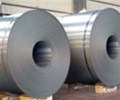

US metals groups have issued support for the framework of a new infrastructure bill the Senate voted to advance late July 28 after weeks of negotiations.
The bill moved forward in the chamber by a vote of 67 to 32, above the 60-vote threshold needed for the measure to move forward, with 17 Republicans joining Democrats to advance the legislation.
The deal includes $550 billion in new federal investment in US infrastructure, including $110 billion in new funds for roads, bridges and major projects, and an additional $7.5 billion investment to build out a national network of electric vehicle chargers.
‘A key development’
American Iron and Steel Institute CEO Kevin Dempsey said the group supports the framework, calling the investment much-needed.
“This is a key development in the process to fix America’s deteriorating roads and bridges — and to use American steel to do so,” Dempsey said. “We also applaud the bill’s provisions to ensure that the steel products for water infrastructure projects be made in the US.”
Ideally, the legislation will create thousands of good paying jobs while making US roads and bridges safer, the economy more competitive, and the climate greener, Philip Bell, president of the Steel Manufacturers Association, said.
“With approximately $550 billion in new federal spending towards steel-intensive, traditional infrastructure projects, our country can begin to upgrade our national electric grid, extend broadband internet access, improve our water infrastructure and modernize public transit,” Bell said.
Backing from Aluminum Association
The Aluminum Association sent a letter to Congress July 29 voicing the industry’s support for the infrastructure framework.
“The US aluminum industry and its leaders know that this once-in-a-generation infrastructure investment will make our nation more resilient, our climate cleaner and our economy more competitive,” Aluminum Association CEO Tom Dobbins said in the letter. “As one of only eight critical mineral commodities recognized by the federal government as essential to all sectors of the US economy, this bipartisan investment will depend on aluminum.”
The framework addresses several of the Aluminum Association’s infrastructure priorities, including vehicle electrification, bridge rehabilitation, electric grid modernization, public transportations building and recycling infrastructure, the group said.
All of the groups urged Congress to pass the legislation.
The American Society of Civil Engineers graded overall US infrastructure at a “C-” in its latest four-year review, issued March 3. While US infrastructure moved up from a “D” grade range for the first time in more than 20 years, significant work remains, the group said.
Source: Platts